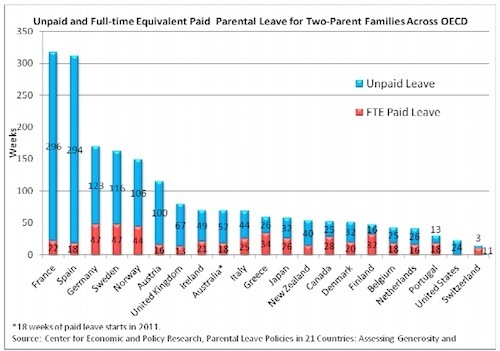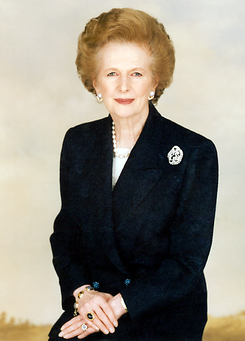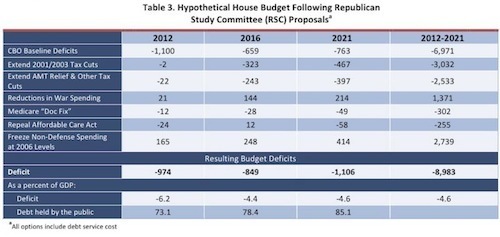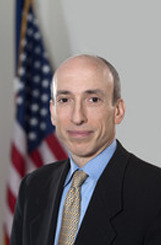Matthew Yglesias's Blog, page 2384
March 18, 2011
The Best Line on Economics and Science
Tyler Cowen sums it up: "Economics is most like a science when people do not care about the outcome of the argument."
In other words, social science is like science when it's like science—disinterested. But when it's like politics, then it's like politics. I note that American economists are generally able to reach a much greater degree of consensus when they offer policy recommendations to foreign countries than when they offer recommendations to the US congress. That's not because foreign countries have easier problems to solve.


Paid Parental Leave
I'm a longtime mandatory paid vacation skeptic for standard neoliberal sellout reasons but one area where I think direct labor market intervention would offer large gains is in terms of paid parental leave. As Lauren Damme writes (PDF) the US is a real outlier in terms of not offering it:

The U.S. is the only wealthy country in the world without a system of paid leave to support working families. The experiences of developed nations show that economic growth is not undermined by policies that allow parents to spend adequate time with their newborn children. Equally important, paid parental leave policies are associated with lower infant mortality rates, better cognitive test scores and fewer behavioral problems for children, as well as fewer negative labor market consequences for mothers.
The point here, to me, is that subsidizing child-rearing is an eminently reasonable policy goal. Since a kid born today won't be in the workforce until 2030 or later it's very possible that a measure to reduce present labor supply in favor of more child-rearing will entail some kind of small short-term hit to growth. But in the long run people matter most, and giving parents the ability to take the time needed to get infants off to a good start in life is something with very large payoff.


The Thatcher Legacy

Keith Humphreys has an interesting post on British ill-will toward Margaret Thatcher:
Thatcher makes an intriguing foil to her contemporary conservative head of state, President Reagan. When the latter was revealed to have Alzheimer's disease, many people who voted against him voiced sincere sympathy for what he and his family were going through. In contrast, I spend an awful lot of of time in the U.K. and am in touch with people there almost every day, and I have to say that if Ms. Thatcher's own dementia is generating sympathy in Brits who hated her policies, they are doing a frightfully good job of hiding it. I don't even hear much sympathy from people who did vote for her. Thatcher seems to be in that small group of politicians who have a strange political legacy: The number of people who today acknowledge voting for them is far fewer than could explain all the elections they won.
I think the real answer here is that not that many people voted for Margaret Thatcher. In 1980, about 51 percent of the public voted for Ronald Reagan in a three-way race against Jimmy Carter and John Anderson. He had a lot of controversial initiatives, and in 1984 he won a resounding re-election with 59 percent of the vote. Thatcher, by contrast, won a three way election in 1979 with 44 percent of the vote. In 1983 her support slipped slightly to more like 43 percent. In 1987 she won again, but her support further dropped to around 42 percent.
There was a similar run under Tony Blair, where he kept securing parliamentary majorities based on electoral minorities. I think there's a lot to be said for the UK political system and obviously in retrospect the thing to say about the Thatcher years is that had Labour been willing to take the Blairite turn in 1983 they could have won the election in alliance with the Liberals instead of waiting 14 years to do it on their own. But the ability of a prime minister to wield extraordinary power based on a parliamentary majority obtained with an electoral minority seems likely to engender a lot of bitterness.


Mend The Fed!

In the latest issue of Democracy: A Journal of Ideas I have a piece about progressives, the Federal Reserve, and the need to confront the centrality of monetary policy to economic issues:
On the merits, these conservative complaints are absurd. After then-Fed Chairman Paul Volcker and Ronald Reagan beat inflation in the early 1980s, annual increases in the Consumer Price Index (CPI) hovered around 4 percent per year for the rest of the decade. After the recession of the early 1990s, the Fed held inflation mostly below 3 percent for almost 20 years. Since the onset of the Great Recession in December 2007, the CPI's rate of increase has been steadily lower than even that. At the same time, unemployment has been sky-high, real growth has been first negative and then disappointingly slow, and overall consumer demand has been well below the pre-crisis trend. The idea that a time of unusually high unemployment and unusually low inflation would be a good moment for monetary policy-makers to start caring less about growth and more about price stability, especially when we already have price stability, is bizarre.
In response, Paul Krugman has called on progressives to "denounce Republican attacks on the Federal Reserve and defend the Fed's independence." But we need something better than a simple circling of the wagons around the powers that be. After all, people are angry for the very good reason that economic performance is currently very bad. And unlike a lot of the targets of popular anger in the Obama era, from autoworkers to hedge fund managers, America's central bankers are in fact the ones who are supposed to deliver decent macroeconomic outcomes.
Which is just to say that while there are a lot of greedy bastards in America, it's generally they're job to be greedy bastards. The members of the Federal Reserve Board of Governors and the presidents of the regional Federal Reserve banks, by contrast, are specifically tasked with the job of preventing giant recessions. They've failed. Utterly. And it's a big deal.


The GOP Budget Challenge
The Concord Coalition has a helpful analysis of the budget debate that we're still waiting for. That is to say that leaving aside the question of the FY 2011 appropriation, how does Paul Ryan write a budget that extends the Bush tax cuts, rules out all other tax increases, and nonetheless gets a budget deficit lower than what the White House has preposed. The short answer is that they can't:

The first hypothetical budget assumes that Republicans repeal the ACA and follow current policy in other areas — extend all of the expiring tax cuts, reduce war spending over the next ten years (roughly following Obama Administration and CBO estimates), and prevent drastic cuts in Medicare physician payments. It then applies spending cuts proposed by the Republican Study Committee (RSC), which would freeze non-defense discretionary spending at 2006 levels and then cut another $200 billion in other spending. In all, the RSC estimates that its spending cuts would reduce the deficits by $2.7 trillion (including debt service savings) over 10 years.
Under this scenario, the resulting deficits would be $2 trillion larger over 10 years than the CBO baseline ($9.0 trillion vs. $7.0 trillion). Deficits as a percent of GDP would never drop below 4.0 percent (2018) or $763 billion (2015). Debt held by the public would rise to 85.1 percent in 2021.
Alternatively, you can throw in Paul Ryan's plan to privatize Medicare and then cut Medicare outlays:
There has also been some discussion of including fundamental entitlement reform in the House Republicans' budget. While the appropriate committees of jurisdiction must write specific legislation within the overall framework of the budget resolution, Ryan could assume entitlement changes consistent with known options. One such option is his proposal (made with former Clinton Administration OMB Director Alice Rivlin) to reform Medicare by turning it into a voucher-based system. CBO estimates that this would reduce deficits over the first 10 years by $389 billion.
Making these changes, combined with the spending cuts in the RSC proposal, gets the Republican budget to $7.5 trillion in deficits relative to the Administration's $7.2 trillion and CBO's $7.0 trillion. In this scenario, debt held by the public as a percentage of GDP increases over the 10-year period from 72.8 percent to 78.9 percent.
This is the budget debate the administration wants to be having—a debate about a hypothetical House Republican budget that will include draconian spending cuts and higher deficits than the administration is proposing.


The Lingering Effect of Chernobyl

Potassium iodide apparently looks like cocaine.
And this, of course, is why nuclear accidents are so scary; even if you come through feeling fine there are lots of ways you can end up suffering ill-effects in the long run:
Nearly 25 years after the accident at the Chernobyl nuclear power plant in Ukraine, children and teenagers who drank contaminated milk or ate affected cheese in the days and weeks after the explosion still suffer from an increased risk of thyroid cancer, according to a study released Thursday by the National Cancer Institute. The study confirms earlier research about the risks of radioactive iodine, which can accumulate in the thyroid gland and lead to cancer later. Potassium iodide is often given as a supplement to prevent the accumulation of the radioactive type in thyroid glands, but Russian authorities failed to provide the supplement to all those at risk.
The part where the Soviet authorities just didn't pony up the potassium iodide needed is a reminder that in all kinds of crisis situations there's no substitute for well-functioning government.


Starving the Watchdogs

A frontal assault on the idea of prudential regulation of the financial system is unlikely to be a political winner, so the smart guys are sneaking through the back door:
Mr. Gensler, in testimony before a House appropriations subcommittee, called the Commodity Futures Trading Commission "a good investment for the American public, overseeing vast markets with a relatively small staff." Despite the nation's budget deficit, Mr. Gensler said his agency needed a budget increase "because, as we saw in 2008, without oversight of the swaps market, billions of taxpayer dollars may be at risk."
Although the White House agrees with Mr. Gensler, Congressional Republicans are eying severe cuts to the agency's funding.
Of course the premise of Gensler's testimony is that if Congressional Republicans come to believe that higher CFTC funding is important to maintaining appropriate derivatives regulation, that will make them more inclined to back it. My suspicion is that the reverse is true. If Gensler were to solemnly promise that he will endeavor to waste a giant share of his agency's budget on buying really fancy office chairs, that the committee might be persuaded to listen to lobbyists from the chair industry and pony up the money. The aim here is to starve enforcement agencies of money needed to enforce the law. Then when the next crisis comes we'll get (a) a giant bailout and (b) the argument that since existing regulations didn't work, clearly what we need to do is formally repeal all regulations and pretend there won't be any future bailouts.


Integration vs Decentralization in Health Care

Here's a different way of looking at the health care issue:
What I hope is that my material can go to Washington as nonpartisan, as just a foundation of understanding. If they have the same way to frame the problem, then the Republicans and the Democrats should be able to work together much better. The Americans look at Canada, Europe and Australia, where the government is the payer. Maybe we ought to adopt their model. And the Europeans and the Australians are saying, "You know, this isn't working very well, maybe we ought to adopt the U.S. model." That's the wrong categorization scheme. The right one question is "Should we be integrated (like Kaiser Permanente or Finland), or should we be modular (like Partners in Boston and the Canadian and German systems)?" It's not public versus private.
Although I do think part of the issue here may be simply that the contrast between the payers may not be as large as conventional wisdom suggests. After all, Americans over the age of 65 have long benefitted from a Canadian-style single-payer health insurance system. And the elderly are in many ways the core clients of the health delivery system. Nonetheless, I think the integrated vs centralized analysis has a lot of force and is a useful way to look at the issue.


Wealthy Individuals and Big Business to Finally Get a Free Shake in American Political Process

Like most Americans, I spend a lot of time worrying about the health of our political system. How, I wonder, can congress and state legislatures possibly grasp with the big problems in a climate when rich people and large corporations find it so difficult to have their voices heard? But Ken Vogel reassures me that help is on the way for long-suffering fatcats:
Not satisfied by the 2010 Supreme Court ruling that opened the floodgates to corporate-sponsored election ads, conservative opponents of campaign finance regulations have opened up a series of new legal fronts in their effort to eliminate the remaining laws restricting the flow of money into politics.
They have taken to Congress, state legislatures and the lower courts to target almost every type of regulation on the books: disclosure requirements, bans on foreign and corporate contributions and – in a pair of cases the Supreme Court will consider this month – party spending limits and public financing of campaigns.
The sustained assault, combined with the Supreme Court's rightward tilt on the issue, has some advocates for reducing the role of money in politics fretting about the possibility of an irreversible shift in the way campaigns are regulated and funded that would favor Republicans and corporate interests in the 2012 presidential race and beyond.
The 2012 election is coming up pretty soon, so I do think it's plausible that monkeying with campaign finance rules can advantage GOP candidates in that election. But over the long term I always do caution people against overstating the partisan stakes in these kind of things. The Democratic Party is and always has been a lean, mean, election-winning machine able and willing to assemble whatever kind of ideological mish-mash is required to gain office. I think there's every reason to think that whatever happens, Democrats will continue to win about half the time, if not somewhat more often than that. The real question isn't whether the system will reach equilibrium, it's what we'll be debating in order to get to that point. Already the evidence suggests that politicians completely ignore the preferences of voters in the bottom third of the income distribution. That could shift to a system in which the middle third is ignored as well. Who knows. But whatever the details, in the future rich businessmen will have an even stronger voice in determining national policy.


Public Opinion Gay For Marriage Equality
And the tide of progress marches onward:
More than half of Americans say it should be legal for gays and lesbians to marry, a first in nearly a decade of polls by ABC News and The Washington Post. This milestone result caps a dramatic, long-term shift in public attitudes. From a low of 32 percent in a 2004 survey of registered voters, support for gay marriage has grown to 53 percent today. Forty-four percent are opposed, down 18 points from that 2004 survey.
The issue remains divisive; as many adults "strongly" oppose gay marriage as strongly support it, and opposition rises to more than 2-1 among Republicans and conservatives and 3-1 among evangelical white Protestants, a core conservative group. But opposition to gay marriage has weakened in these groups from its levels a few years ago, and support has grown sharply among others – notably, among Catholics, political moderates, people in their 30s and 40s and men.
People under 40 are for equality, those over 50 are generally against, with the fortysomething's closely aligned. As I said yesterday, this is one of the issues the right will have to moderate on to improve its disastrous standing with younger voters. But I think the main practical impact here is that now any federal judges with pro-equality convictions can rest assured that pro-equality decisions will be acceptable to public opinion and not lead you to get immediately abandoned by every elected official in sight. And by 2016, the kind of equivocation on the subject that Barack Obama and Hillary Clinton engaged in will clearly be unacceptable to an equality-minded Democratic primary electorate.


Matthew Yglesias's Blog
- Matthew Yglesias's profile
- 72 followers



